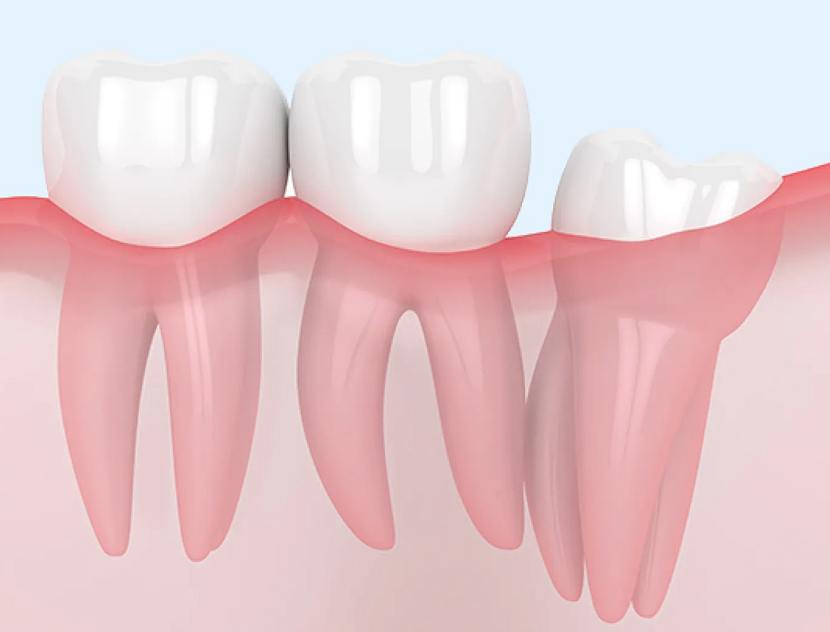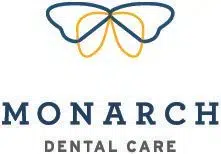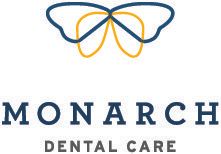
Is Wisdom Tooth Removal the Only Answer?
Wisdom teeth, the third set of molars that often emerge during your late teens or early twenties, can present a range of problems that may lead to the recommendation of extraction. But what if there was another way? Our Prairie Village dentist explores alternatives to wisdom teeth removal, focusing on less invasive solutions that can help you maintain your oral health without the need for extraction.
Contact Monarch Dental Care today by calling (913) 362-4488 for an appointment. Dr. Alexander Clark is one of the best dentists for resolving wisdom tooth pain.
What Are Wisdom Teeth?
Wisdom teeth, also known as third molars, are the last to erupt in the mouth. They typically emerge between 17 and 25, though some people may never develop them, and eruption timing can vary greatly. Wisdom teeth are remnants of our evolutionary past when humans needed a larger jaw to process tougher foods. Our jaws are often smaller, leading to potential problems with wisdom teeth eruption.
Why Do Wisdom Teeth Cause Pain?
There are several reasons why wisdom teeth can cause pain:
- Impaction: Often, there isn't enough space in the jaw for wisdom teeth to erupt fully. This can cause them to become impacted, meaning they are stuck beneath the gum tissue or bone. Impacted wisdom teeth can push on surrounding teeth, leading to pain and misalignment.
- Infection: Partially erupted wisdom teeth can trap food particles and bacteria, increasing the risk of infection and gum inflammation (gingivitis).
- Overcrowding: Even if wisdom teeth erupt fully, they can crowd other teeth, causing pain and misalignment.
- Damage to surrounding nerves: In some cases, wisdom teeth can grow close to nerves, causing radiating pain, numbness, or tingling.
Alternatives to Wisdom Tooth Extraction
Monitoring
This may be an option if your wisdom teeth are healthy, fully erupted, and causing no problems. Regular dental checkups (every six months) and cleanings are crucial for monitoring their health. Your dentist will take X-rays periodically to assess any changes in their position or development. If wisdom teeth remain healthy and asymptomatic, monitoring can continue as a viable long-term strategy.
Pain Management
For mild discomfort associated with wisdom teeth eruption, over-the-counter pain relievers like ibuprofen or acetaminophen can offer temporary relief. Maintaining good oral hygiene practices, including thorough brushing and flossing, can help manage discomfort by reducing inflammation and preventing infection.
Antibiotics
If an infection develops around a wisdom tooth due to impaction or difficulty cleaning the area, your dentist may prescribe antibiotics to clear the infection. This can help alleviate pain and swelling. However, antibiotics won't address the underlying cause of the problem, so further evaluation and treatment may be necessary depending on the wisdom tooth's condition.
Coronectomy
This surgical procedure removes the crown (top portion) of an impacted wisdom tooth while leaving the root intact. This option is often considered when a wisdom tooth is positioned close to nerves, and full extraction carries a higher risk of nerve damage. Coronectomy can be a more complex procedure than traditional extraction, and recovery times may be similar. However, it can be a good choice to minimize the risk of nerve complications.
Orthodontics
Braces or clear aligners (like Invisalign) can sometimes be used to create space for proper wisdom teeth eruption or address overcrowding caused by them. This option is most suitable for younger patients with developing jaws and may not be feasible for everyone. Treatment with orthodontics is a longer-term commitment than other options, typically taking months to years to complete. Consulting with an orthodontist alongside your dentist can help determine if this approach is a viable alternative for your specific situation.
Determining if Alternative Procedures for Extraction Are Right For You
Consulting with a dentist is crucial to determine the best course of action for your wisdom teeth. Here are some factors they will consider:
- X-rays will reveal if wisdom teeth are impacted, angled incorrectly, or causing crowding.
- Pain, swelling, infection, or gum disease associated with wisdom teeth indicate potential problems.
- Limited jaw space can increase the risk of impaction and other complications.
- Underlying dental issues may influence treatment decisions.
Alternative Wisdom Tooth Removal Procedure Costs
The cost of alternative procedures compared to traditional wisdom teeth removal can vary depending on your situation and insurance coverage. Here's a general comparison:
- Traditional Wisdom Teeth Removal: $200-$600 per tooth (average)
- Coronectomy: This may be more expensive than removal due to increased surgical complexity.
- Orthodontics: $3,000-$10,000 (average) for treatment to address wisdom teeth issues.
- Monitoring: Regular dental checkups and cleanings vary in cost depending on your insurance.
Remember, the cost of leaving untreated wisdom teeth with potential complications can be significant in the long run. Discuss all options and cost considerations with your dentist to make the best decision for your oral health. Learn more about Monarch Dental Care’s financing options.
Frequently Asked Questions
Resolve Wisdom Tooth Pain Without Extraction!
Tooth extraction may not always be the only solution to address problems with wisdom teeth. There are a few alternative treatments that may better suit your needs. If you need to have your wisdom teeth evaluated, contact our Prairie Village dentist today by calling (913) 362-4488 to schedule an appointment. We also welcome patients from Mission, Overland Park, and Leawood.

